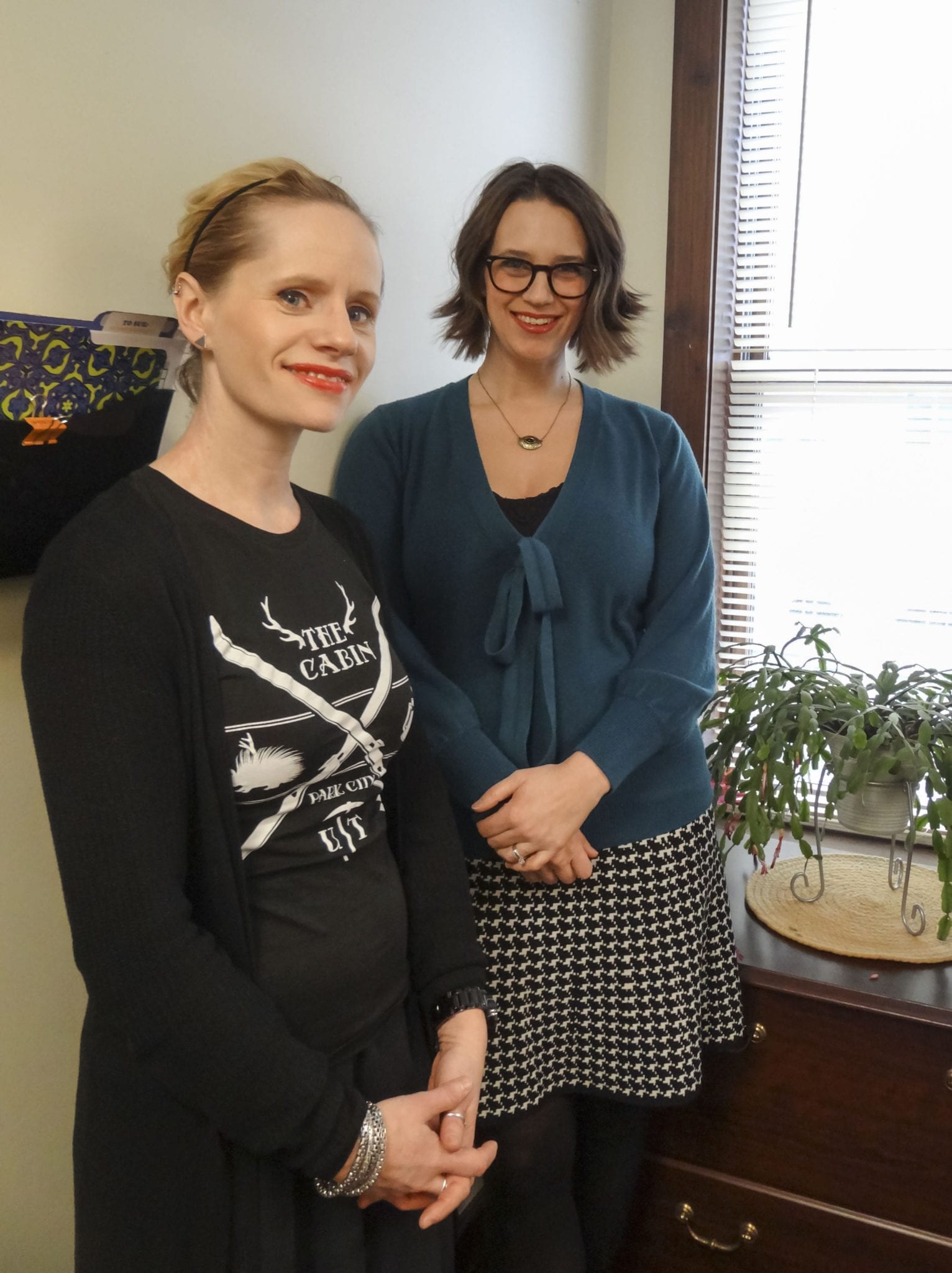
Jenn Davis Nielsen (left) and Erin Williams Hueter of LCS Northwest Spokane are leading our efforts in the Washington Legislature to strengthen protection orders for sexual assault victims.
Not all sexual assault victims have equal rights in Washington. LCS Northwest Spokane and the King County Sexual Assault Resource Center in Seattle have formed a cross-state partnership to raise awareness and pass a bill that would standardize protection orders.
We are advocating for House Bill 2033, which proposes to modify the sexual assault protection order to make it equal to domestic violence and anti-harassment protection orders. A protection order is a civil order issued by the court that requires perpetrators to stay away from victims and places they frequent, and to have no further contact with victims.
Currently, if a sexual assault occurs between two people who are dating or married, or have a history of dating or marriage, it is considered a form of domestic violence, and victims can request a permanent protection order. However, victims assaulted by people they have never dated or married can only qualify for a sexual assault protection order, which expires after a maximum of two years.
After two years, if the victim still desires protection, she (or he, in some cases) must reapply for the protection order and re-prove her case in a formal court hearing. This means that for a second time she bears the “burden of proof” to reinstate the protective order.
“It’s a very tough process for victims to go back after two years,” says Jenn Davis Nielsen, LCS Northwest Advocacy Supervisor.
“She has to testify again. She has to see him again,” says LCS Northwest Advocacy and Prevention Director Erin Williams Hueter. “And if he brings a lawyer, a simple hearing can start to look and feel a lot more like a trial.”
HB 2033 proposes two major changes. It would eliminate the two-year maximum, and it would shift the burden of proof from the victim to the perpetrator, which means that if the perpetrator believes the order should be lifted, he will have to go to court to prove his case.
“Justice is part of our mission,” Williams Hueter says. “We help individual survivors to rebuild their lives. We’re also working with lawmakers to uphold victim rights throughout the state.”
HB 2033 has broad bipartisan support. Last year it overwhelmingly passed the House, and passed unanimously out of the Senate Law and Justice Committee. However, during a contentious year when budget conflicts nearly caused a government shutdown, HB 2033 was placed on the back burner, and ultimately stalled in the Senate Rules Committee. Leaders from King County Sexual Assault Resource Center and LCS Northwest decided to work together to give the bill more momentum in 2016.
They’ve talked to newspapers in Seattle and Spokane, and recently met with Senator Mike Padden, a former judge and attorney from the Spokane area and head of the Senate Law and Justice Committee. They are hoping that Senator Padden, who supports HB 2033 and voted for it last year, will help move the bill forward. They are also working hard to encourage the public to speak up for victim rights.
“Trauma has the power to destroy people’s lives,” says Williams Hueter. “Sexual assault victims shouldn’t be treated differently from other victims.”
Washington’s 2016 legislative session started Jan. 11 and is expected to end March 10. To support our HB 2033, please contact your legislators here.
Written by Olivia Brannon, Grant Writer at LCS Northwest Spokane

